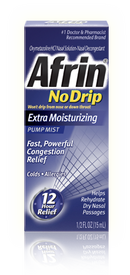diveguy600
Registered
- Messages
- 19
- Reaction score
- 3
About 25% of the time I go diving I encounter a situation where I am just not able to equalize at all and my ears are in terrible pain when I descend no matter what I do. This happens when there are absolutely no outward symptoms - i.e. my breathing is fine and clear, no evidence of a cold and I do not feel unwell at all. I haven't been able to figure out what the root cause is. As you know diving can be expensive and signing up for dives and then not be able to complete the dive due to ear trouble could may as well be like gambling in Vegas.
I know this is controversial and some divers advocate against it...but, what are the most effective medications that assist with ear clearing? Which of you use these meds and how has it changed your ability to equalize? I have heard about Sudafed and Claritin. A lot of these doses I see are for a few hours of effectiveness which should cover the duration of the dives.
I know this is controversial and some divers advocate against it...but, what are the most effective medications that assist with ear clearing? Which of you use these meds and how has it changed your ability to equalize? I have heard about Sudafed and Claritin. A lot of these doses I see are for a few hours of effectiveness which should cover the duration of the dives.




